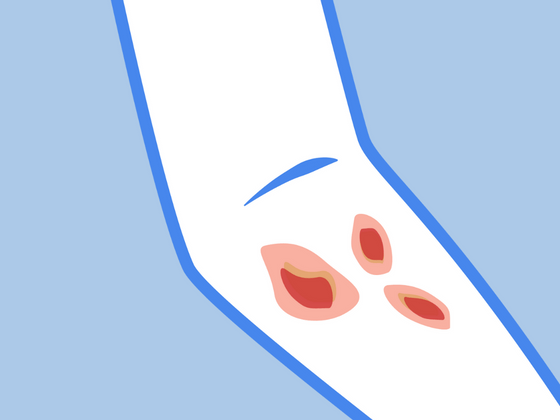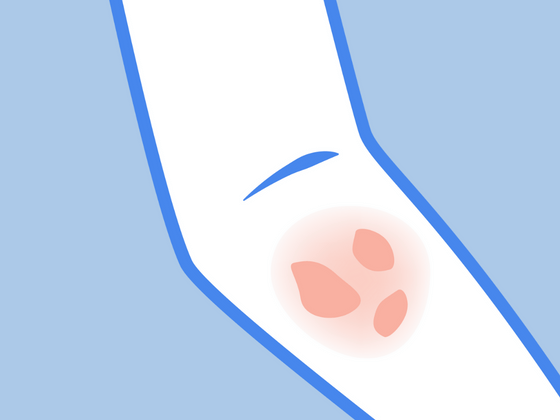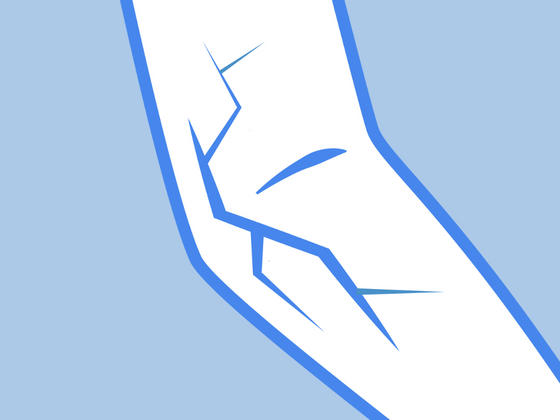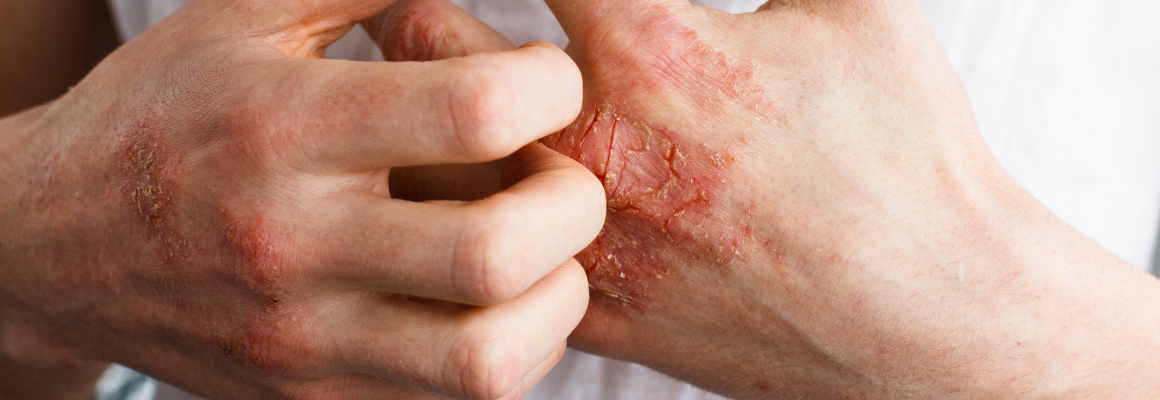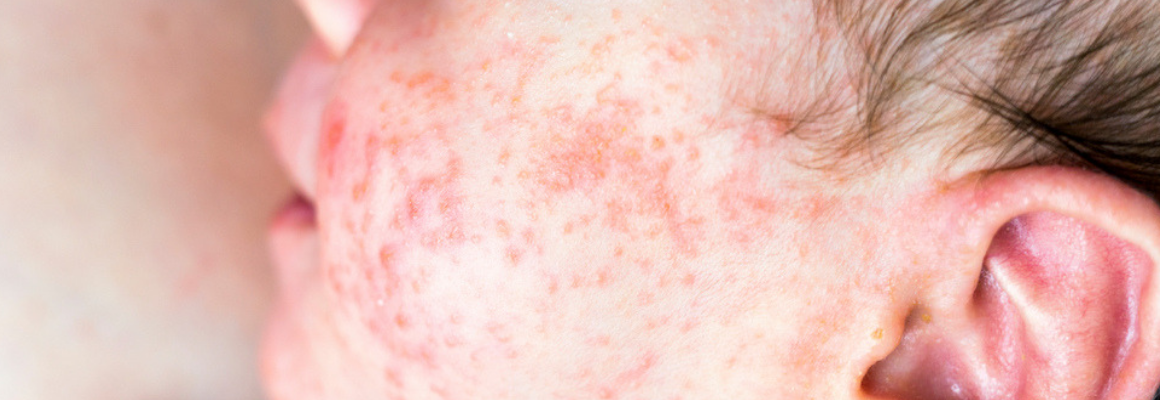Seborrheic dermatitis on or around the eyes is a unique problem that requires special care due to sensitive skin. Discover some natural treatments that can help heal your eyelid seborrheic dermatitis gently and naturally!
What Causes Seborrheic Dermatitis?
Although many believe that seborrheic dermatitis can be trigged by an allergy like eczema, numerous studies have shown that is not.
This type of dermatitis is believed to be an inherited genetic issue, so if one or both parents struggles with seborrheic dermatitis (which most often presents as dandruff), it can be passed along to children.
Other causes can be associated with yeast (that normally lives on our skin), living in a cold and dry climate, stress, and a person’s overall health.
Often, seborrheic dermatitis can present itself in those who have immune systems that are already compromised by some other chronic or serious illness. It can also present itself in children at a younger age, such as the common condition known as cradle cap in babies and infants. For these cases, specialized eczema cream for babies may be helpful.
While it is primarily genetic, any bacteria on the eyelid or around the eye can worsen the condition, so it is important to wash the skin regularly.
How To Spot Seborrheic Dermatitis on Eyelids
Seborrheic dermatitis can appear as a red or pink rash accompanied by greasy looking skin and white flakes.
Although it normally itches, this type of skin condition can also cause a burning sensation if left untreated.
Seborrheic dermatitis often occurs on areas of skin that accumulate oil easily like the chin, edges of the nose, eyelids, eyebrows, and forehead and the scalp.
The development of seborrheic dermatitis around the eyes can cause darkening of the skin, as well as extra folds or lines that develop around the edges or underneath the eyes.
Healing seborrheic dermatitis is a challenge, but finding relief for seborrheic dermatitis in a delicate area like the eyes, can be even harder.
Eyelid Seborrheic Dermatitis Treatment
Treatment for seborrheic dermatitis focuses on reducing the symptoms – primarily the itching or burning, as well as flaky skin.
Keep Eyelids Clean
Even though seborrheic dermatitis does not come from allergies or irritants, it is important to avoid antagonizing the already inflamed area. On top of regularly washing your face, it is essential to avoid chemicals or irritants that can cause further irritation.
Certain types of makeup, false eyelashes, contacts, or swimming goggles can all irritate and inflame eyelid seborrheic dermatitis.
Moisturize with Balms and Creams
Seborrheic dermatitis requires moisturizing. This may seem illogical, because the skin often appears and feels greasy, but using a natural moisturizer like beef tallow cream can help restore the balance of natural oils.
For example, this Organic Manuka Skin Soothing Cream was made to moisturize and cool itchy, inflamed skin. Manuka honey and oil are known for their healing properties and can help reduce redness or discoloration, while repairing the delicate skin on and around the eyes.
For keeping skin clean prior to moisturizing, we recommend this Organic Calendula Face Wash. Not only does it contain calendula, a soothing herb that will calm irritated skin, but it will not strip skin like other face washes.
Lastly, this Calendula Facial Cream for Eyelid Eczema can target itching around the eyes without hurting sensitive skin. Plus, it contains DMAE which is anti-inflammatory in nature and can provide anti-aging, skin firming properties. It can also help reduce lines and cracks that are caused by eyelid seborrheic dermatitis.
Lock in Moisture
After cleansing and moisturizing the affected area, it is important to ensure that these helpful treatments stay put, especially when treating skin overnight.
Resources
http://www.bad.org.uk/for-the-public/patient-infor...

